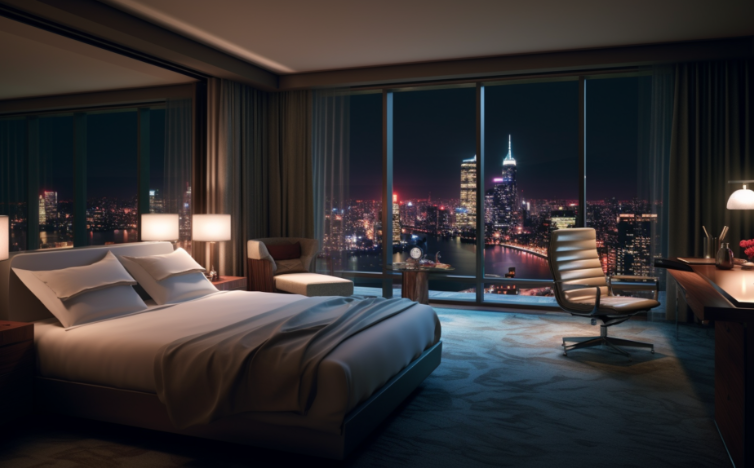Creating a quiet and comfortable environment is essential in the hospitality industry. Guests expect a peaceful stay, free from external noise distractions. Soundproofing hotel rooms is crucial to ensuring this satisfaction and minimizing noise complaints. Here’s a guide on why and how hotels can effectively soundproof their rooms.
Why Soundproofing Matters for Hotels
Guests often seek a hotel room as an escape from noise, and managing sound is central to providing a high-quality experience. Soundproofing hotel rooms minimizes disturbances from sources like neighboring rooms, corridors, and street noise, creating a calm and enjoyable stay. This investment can lead to positive reviews, repeat bookings, and improved ratings.
Key Sources of Noise in Hotel Rooms
Before starting on soundproofing solutions, it’s essential to identify common noise sources in hotel rooms:
- External Noise – Traffic sounds, construction, and other outdoor noises.
- Internal Noise – Sounds from hallways, elevators, or other rooms.
- Mechanical Noise – HVAC systems, plumbing, and other operational equipment.
Effective Soundproofing Solutions for Hotel Rooms

1. Soundproof Windows
Installing double or triple-glazed windows can be highly effective in reducing external noise, especially in urban areas or near highways. Acoustic laminated glass windows offer enhanced soundproofing capabilities, blocking out more noise than standard windows.
2. Soundproof Walls and Partitions
Rooms often share walls, making sound insulation critical. Soundproofing walls with materials like acoustic drywall, foam panels, or Mass Loaded Vinyl (MLV) can help to minimize noise transmission. For optimal results, install soundproof partitions between rooms or use resilient channels to further dampen vibrations.
3. Acoustic Doors
Standard doors are often poor at blocking sound, so consider replacing them with acoustic doors designed for soundproofing. Adding door sweeps and seals also helps reduce noise transfer, creating an effective barrier between the hallway and room.
4. Soundproofing the Floor and Ceiling
Noise from rooms above or below can be minimized with soundproofing in floors and ceilings. Carpeting or adding underlay padding can absorb sound, while acoustic ceiling tiles reduce impact noise from footsteps or furniture movement.
5. Soundproofing HVAC and Plumbing Systems
Noise from HVAC systems or plumbing is a common complaint in hotel rooms. Consider adding sound-dampening insulation around pipes or installing quieter HVAC units. For new constructions, placing HVAC systems further away from guest rooms can help minimize disturbances.
Cost-Benefit Analysis of Soundproofing in Hotels
Soundproofing is an investment, but it offers long-term benefits for hotels. Improved guest satisfaction often translates to positive reviews and reduced noise complaints. The return on investment includes lower guest turnover, better online ratings, and a reputation for providing a restful stay.
How to Maintain Soundproofing in Hotel Rooms
Regular maintenance is key to ensuring long-term soundproofing effectiveness. Inspect doors, windows, and HVAC systems periodically to check for any wear and tear. Replace seals and fix leaks promptly to maintain soundproofing standards.
Call us: Contact DeSound Soundproofing Expert in Dubai For Soundproofing: +971 56 231 4204
Conclusion
Soundproofing hotel rooms is a worthwhile investment in creating a superior guest experience. With the right soundproofing measures, hotels can significantly enhance privacy and comfort, leading to happier guests and a stronger competitive edge in the hospitality market.

